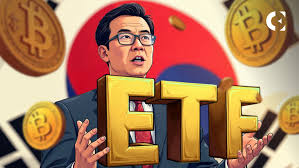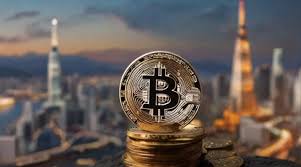South Korea’s top presidential candidates support crypto ETFs – will the country’s investment future change?
The presidential election in South Korea is in full swing, and this time there is great news for crypto enthusiasts. The country’s three leading presidential candidates have openly supported Bitcoin ETFs (Exchange-Traded Funds). This is a signal that South Korea could soon follow in the footsteps of Hong Kong, where spot Bitcoin and Ether ETFs were recently launched for legal trading. But some experts are still cautious about this regulatory shift.
Pro-Crypto Promises by Presidential Hopefuls
CryptoQuant CEO Ki Young Ju stated on May 14 (previously on Twitter) that, “All three major South Korean presidential candidates support Bitcoin ETFs and institutional investment.” He also highlighted that Bitcoin ETFs and institutional crypto investment are currently banned in South Korea. Because of this, “100% volume comes from retail investors,” meaning only ordinary people are able to invest in crypto right now, while large institutions are not yet allowed.

This development becomes even more interesting when we see that on May 6, Democratic Party leader Lee Jae-myung officially announced that if his party comes to power, he will legalize spot crypto ETFs. They also promised to reduce transaction fees and create a safe investment environment — especially for youth, so they can secure their financial future.
Old Promises and New Doubts
But amid this optimism, there is also a reality check. This is not the first time South Korean political leaders have made crypto-friendly promises. The Democratic Party made similar promises in its 2024 election campaign — such as the legalization of spot crypto ETFs — but according to the Korean Economic Daily, no significant progress has been made so far.
Anndy Lian, a blockchain expert and intergovernmental advisor, told Cointelegraph, “Pro-crypto pledges certainly signal a shift, but past experience has made clear that the gap between promises and implementation is quite large.” She also said that South Korea’s future regulatory stance could be similar to Hong Kong’s, but the performance of ETFs will depend on many external factors.
She further added, “A pro-crypto president can definitely drive reform, especially when talking about global trends — like the USA where Bitcoin ETFs have already attracted billion-dollar inflows.”
Political History: A Reason to Be Cautious
Given South Korea’s past political record, experts are not being overly optimistic. Andy Lian reminded that the People Power Party elected in 2022 also promised that it would ban crypto ETFs and revise the controversial “one-exchange-one-bank” rule. But no major action was taken after President Yoon’s impeachment.
For this reason, despite present promises, people are still in wait-and-watch mode. Industry experts say that until the Financial Services Commission (FSC) issues clear guidelines, real progress is difficult.

Hong Kong Experience: A Cautionary Tale
When the first batch of Bitcoin and Ether ETFs were launched for trade in Hong Kong on 30 April 2024, trading activity was very disappointing despite initial excitement — especially compared to US ETFs. This means that legalization alone is not enough, investor trust and market dynamics also play a very important role.
Will South Korea’s Crypto Policy Change in the Future?
South Korea is a technologically advanced nation where youth are very enthusiastic about crypto. If the new president genuinely supports crypto and comes up with concrete regulatory frameworks, South Korea could become Asia’s next crypto hub. But for now, these are just promises — which will have to be seen through the lens of past experiences.
The 2025 South Korea election could be quite crucial for crypto investors. Legalization of Bitcoin ETFs is not just a financial tool, but can open the door to a new economic opportunity for the country’s youth. But will these political promises become reality this time? Or will it prove to be a missed opportunity once again? Only time will tell.
Until then, both investors and enthusiasts should monitor developments closely — and pay attention to policy actions along with political promises.
